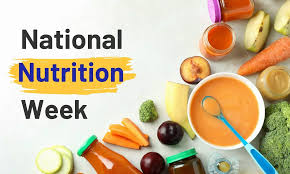[ad_1]
Understanding a Healthy Diet
A healthy diet is the cornerstone of good health, offering protection against a variety of diseases. The World Health Organization (WHO) emphasizes that a balanced diet is crucial in preventing malnutrition, reducing the risk of noncommunicable diseases (NCDs), and promoting overall well-being. But what exactly constitutes a healthy diet?

Key Components of a Healthy Diet
A well-balanced diet includes a variety of foods that provide essential nutrients while staying within appropriate calorie limits. While specific dietary requirements may vary based on factors such as age, gender, lifestyle, and cultural context, the fundamental principles of a healthy diet remain consistent.
Essential Food Groups
To achieve a balanced diet, it is important to incorporate the following food groups:
- Fruits and Vegetables: A diet rich in fruits and vegetables provides vital vitamins, minerals, and dietary fiber. WHO recommends at least 400 grams of fruits and vegetables per day for individuals aged 10 years and older, while younger children should consume proportionately smaller amounts.
- Legumes, Nuts, and Whole Grains: These foods are excellent sources of protein, healthy fats, and complex carbohydrates. They also contribute to a feeling of fullness, which can help with weight management.
WHO Recommendations for Nutritional Intake
The WHO has established guidelines for nutritional intake to ensure optimal health. These recommendations include:
- Fruits and Vegetables: As mentioned earlier, a minimum daily intake of 400 grams for adults is recommended to reduce the risk of NCDs and ensure adequate fiber consumption.
- Fats: Less than 30% of total energy intake should come from fats. Prioritizing healthy fats, such as those found in fish, nuts, and seeds, can help prevent unhealthy weight gain and lower the risk of NCDs.
- Salt, Sodium, and Potassium: Reducing sodium intake while increasing potassium consumption is crucial for cardiovascular health. High salt consumption and low potassium levels can lead to high blood pressure.
- Sugars: Free sugar intake should be reduced to less than 10% of total energy intake, with an ideal target of less than 5% for added health benefits, including a lower risk of dental caries and unhealthy weight gain.
- Carbohydrates: The majority of carbohydrate intake should come from whole grains, fruits, vegetables, and pulses, providing the body with sustained energy.
- Fiber: Adults should aim for at least 25 grams of dietary fiber per day, while children need proportionately lower amounts based on their age.
The Impact of a Healthy Diet
Adopting a balanced and nutritious diet offers a wide range of health benefits, including:
- Disease Prevention: A healthy diet can significantly reduce the risk of heart disease, stroke, diabetes, and certain cancers.
- Weight Management: Nutrient-dense foods help individuals maintain a healthy weight and avoid obesity-related health issues.
- Improved Digestive Health: A fiber-rich diet supports digestive function and prevents gastrointestinal problems.
- Enhanced Mental Health: Proper nutrition is linked to better cognitive function and a reduced risk of mental health disorders.
- Stronger Immune System: Essential nutrients from a balanced diet boost immune function, helping the body combat infections and diseases.
[ad_2]

